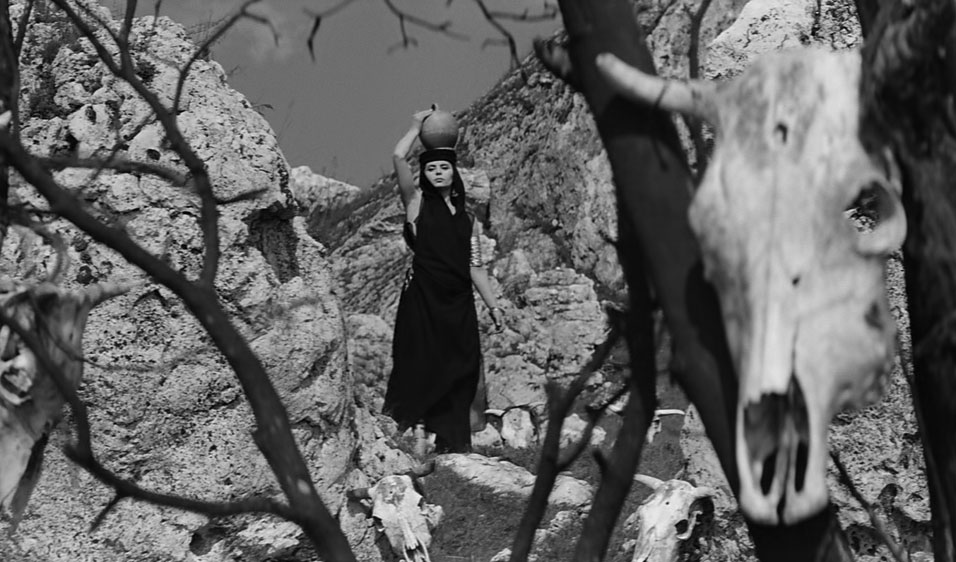
Not much thought seems to have been put into showing what that amounts to: it is telling that this description is mostly quoted by rationalist interpreters of The Saragossa Manuscript.

Wojciech Has famously described his film as a quest for the right way of thinking: everything shown is consistent both with the mystical philosophy of the Kabbalist and the mathematician’s narrative – like Alphonse Van Worden, the viewer must decide himself which perspective to adopt. In following, I try to show that one can make sense of anti-rationalist tendencies in Has’ film without having to dispute the obviously rationalist spirit of that great work: the question is not how can we accommodate Enlightenment given anti-rationalism, but how can we accommodate anti-rationalism given an understanding of Enlightenment which is clearly rationalist at heart? by Frasquita or many of van Worden’s “companions”? The only way one can argue either rationalist or anti-rationalist tendencies away is by begging the question. Furthermore, how would one come to call into question that explanation other than by way of reason? And what is with the unaltered take-over from Potocki’s novel of supposed super-natural occurrences which are later unveiled to have perfectly physicalist explanations, most notably the two times that bodies climbing ladders cause concern 4? Or the fact that Has evidently seeks to unveil the way superstition is used as an instrument of oppression, e.g. The trouble is that such anti-rationalist features co-exist along obvious rationalist tendencies – why should one think the one tendency argues away the other either way 3? One may be displeased with the explanation given to van Worden in the end, but it is some relativizing explanation (indeed, reading madness into van Worden is another). A consequent pursuance of a strictly rationalist message would theoretically undermine the existence of the story 2. The message is obvious: if it weren’t for the preposterous curiosity of the officer, the story we’re watching wouldn’t have been told. Another argument for reading Has as an anti-rationalist – not to get into the profoundly surrealist atmosphere pervading the film – is the actual frame story, which only constitutes about 5 minutes out of 180+ and is thus easily forgotten: at the very beginning of the film, an officer is seen entering a hut during the Napoleonic Wars and starts reading a book – the story of Alphonse van Worden – which he finds so absorbing that he doesn’t notice enemies entering his shelter. Here I am with the anti-rationalists 1 – anyone who finds the Sheikh’s final explanations to be satisfactory must suffer from a lack of curiosity, or demand (which is still better than being on the verge of craziness – see Alphonse). Van Worden is indeed thrown from one mystery to another, making his intended journey to Madrid, where he is to be named officer of the Walloon guard, a confusing roller-coaster of bafflements and plots which are supposed to be dissolved by a one-scene dialogue with a mastermind Sheikh who reveals it all to be a scam. In order to arrive at a correct understanding of Has (and Enlightenment) – which is what I will try to do in this article -, we should not call into question all rationalist tendencies, but note that they are supplemented with reservations very much in line with a canonical understanding of the tradition Has is in.īosch Santos notes that Has “casts doubt precisely on the explanations given to poor Alphonse at the end of the novel”, and that he – the protagonist, Alphonse van Worden – ends up in an undesirable state where he is unable to distinguish dream from wakefulness. Rather, I understand him as a traditional proponent of rationality who is undogmatic in simultaneously admitting its limitations.

Still, I don’t think that Has swaps rationalism for a communitarian-surreal hybrid. Undeniably, Has seems to relativize the rationalist pathos of Potocki’s novel, and certainly his understanding of Enlightenment does not fit the strict rationalism many read into both Has and Potocki.

Bosch Santos thinks that a loose understanding of Enlightenment as a sort of cosmopolitan communitarianism fits both the novel(s) and film(s), and that Has was, if at all, criticizing a misconception of Enlightenment, not Enlightenment as such, which would presumably explain why rationalist tendencies are questioned by Has’ signature surrealism. Does Wojciech Has’ three-hour epos The Saragossa Manuscript betray the Enlightenment spirit of Jan Potocki’s equally mammoth novel? As Pau Bosch Santos illustrates in an article for this journal, one should first get clear on which version of the film and novel one is referring to – at least three are known of each.


 0 kommentar(er)
0 kommentar(er)
